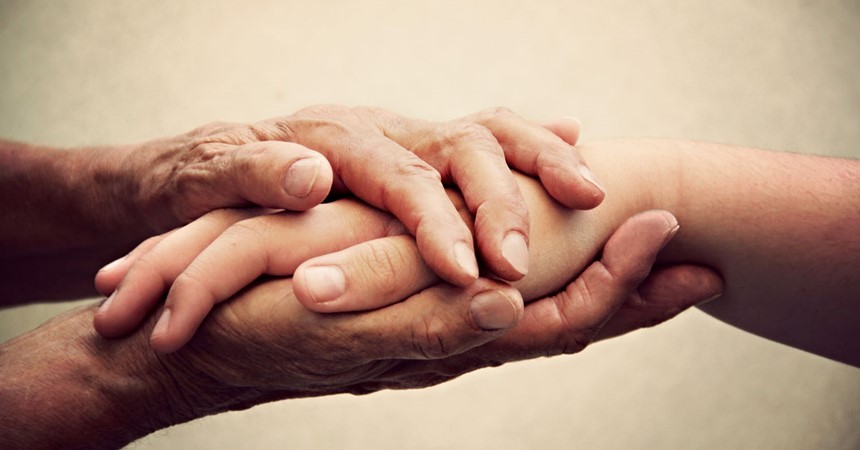Firstly, to say I am catholic is to say that Jesus is the heart of all creation; the beginning and end; the inspiration and the measure. All else flows from believing with my whole heart that Christ abides in me, and striving with my whole being to ensure that I abide in Christ.
It follows that to be catholic is to place love, and therefore relationship, at the core of my life. Collectively we might say that love and relationship are our core business. To love is to seek to embody in my life the same values Jesus embodied in his: compassion, forgiveness, mercy, respect, justice. These are but a few of the loving qualities we see in Jesus. Others are captured in the well-known reading from First Corinthians (13:4-7). What a gift it is to be so loved! And what a challenge it is to be so loving! It can be difficult always to be patient and kind, not to be rude or selfish.
I cannot say I love, and not prioritise relationships. But I can be in relationships that do not prioritise love. Relationships can be grounded in power, even unconsciously. Such relationships are the antithesis of the way of Jesus and the gospel. It is easy to slip into this way of being in relationship. Love pours itself out for the other. Power holds itself over the other. To choose love is a life-long journey, something I learn and relearn every day and sometimes every hour. Love carves me out, asks more of me, stretches and expands me to become more and more like Christ.
Related to love and intrinsic to relationship is the notion of healing. If I say I am catholic, then I move towards pain, towards people and communities who are hurting. I move to touch the wounds and to stand with the wounded. These are the wounds of Christ, visible on all who suffer today, and as scripture says, it is ‘by his wounds we are healed’. Healing does not come if wounds are ignored in myself or others. It is not mine to judge wounds as perhaps invalid or self-inflicted, or that a person should be over that by now, or be able to cope better. If I am catholic I treat wounds with compassion, respect and patience. Wounds and pain are my ‒ and our ‒ growth points. Unacknowledged and without compassion, they lessen me. They lessen us.
Then there is that big catholic thing about wholeness: a unity that embraces and is strengthened by difference. If I say I am catholic then I am always seeking to grow unity. I look at life and the world as ‘both/and’ rather than ’either/or’. I seek not to be pulled into a binary view: good/bad, right/wrong, true/false. Sometimes when we get to the boundaries there is clearly right and wrong, true and false. At these times I must take a gospel stand. However, for the most part, life challenges me to open my eyes and heart to what is different from me. My way, my insight, my understanding, my gift, is only part of the whole. Without the balance of other ways, other understandings, other gifts, there is no ‘whole’.
To paraphrase Richard Lennan, God’s presence generates difference and if there is not difference then we are not catholic. Appreciating difference as God’s gift to strengthen unity helps me understand that to be catholic is to be in dialogue with the other. To this dialogue I bring my experience and wisdom, and I listen to the experience and wisdom of others. In that often messy encounter, we discover the way forward together. Being catholic I respect difference, allow for difference and seek out and celebrate difference.
To say I am catholic is to accept that I am, and we are, a ‘project under construction’. It is to live open to the Word of God, the Holy Spirit and to reading ‘the signs of the times’. It is to accept the responsibility we have to discern together how to live as disciples of Jesus in response to the circumstances we face in 2018. To be catholic is to grow in comfort with the uncomfortable, the unknown, the constantly changing and emerging.
Finally, to be catholic is to be grateful, to open my eyes and heart to all the blessings in my life. Some blessings are overflowing with love. Other blessings emerge from the darkness of challenging times. To wait upon these blessings is not easy and can seldom be done alone. This is something I do in faith, believing and abiding in the paschal mystery, the epitome of the wisdom of God and the place from which new life emerges, usually in the most unexpected ways.
These are some of the things I am pondering as I engage with my question: Who do I say I am as a catholic woman living in 2018? I profess to believe in a church that is ‘one, holy, catholic and apostolic’. Easy to say, challenging to be. I am reassured and somewhat comforted to know that I have not yet finished my race and I am still becoming catholic – constantly shaped by the Word, the celebration of Eucharist and the abiding presence of the Holy Spirit, and always accompanied by the community.
How are circumstances in your life pushing you to consider more deeply what it means to be catholic?























































































